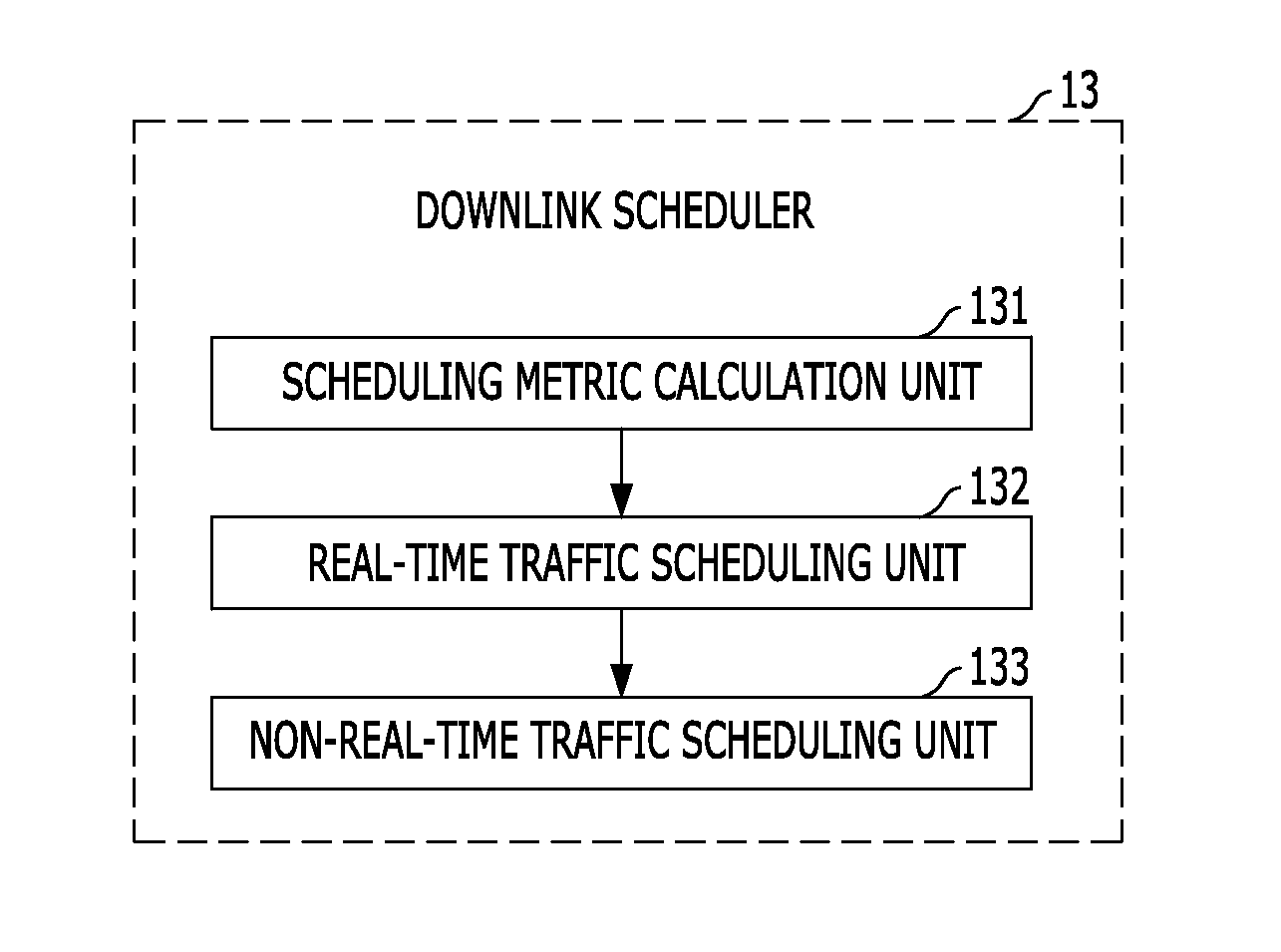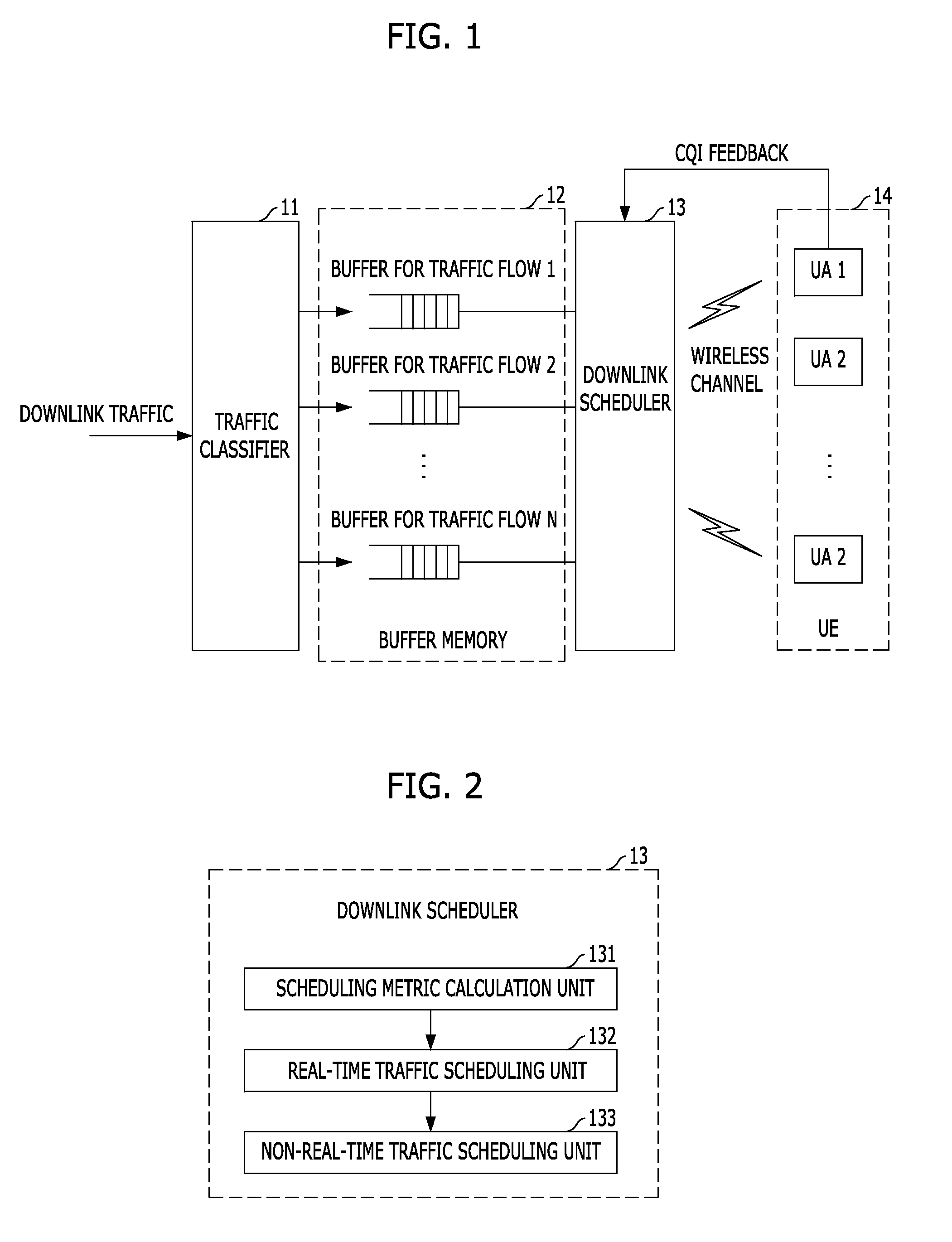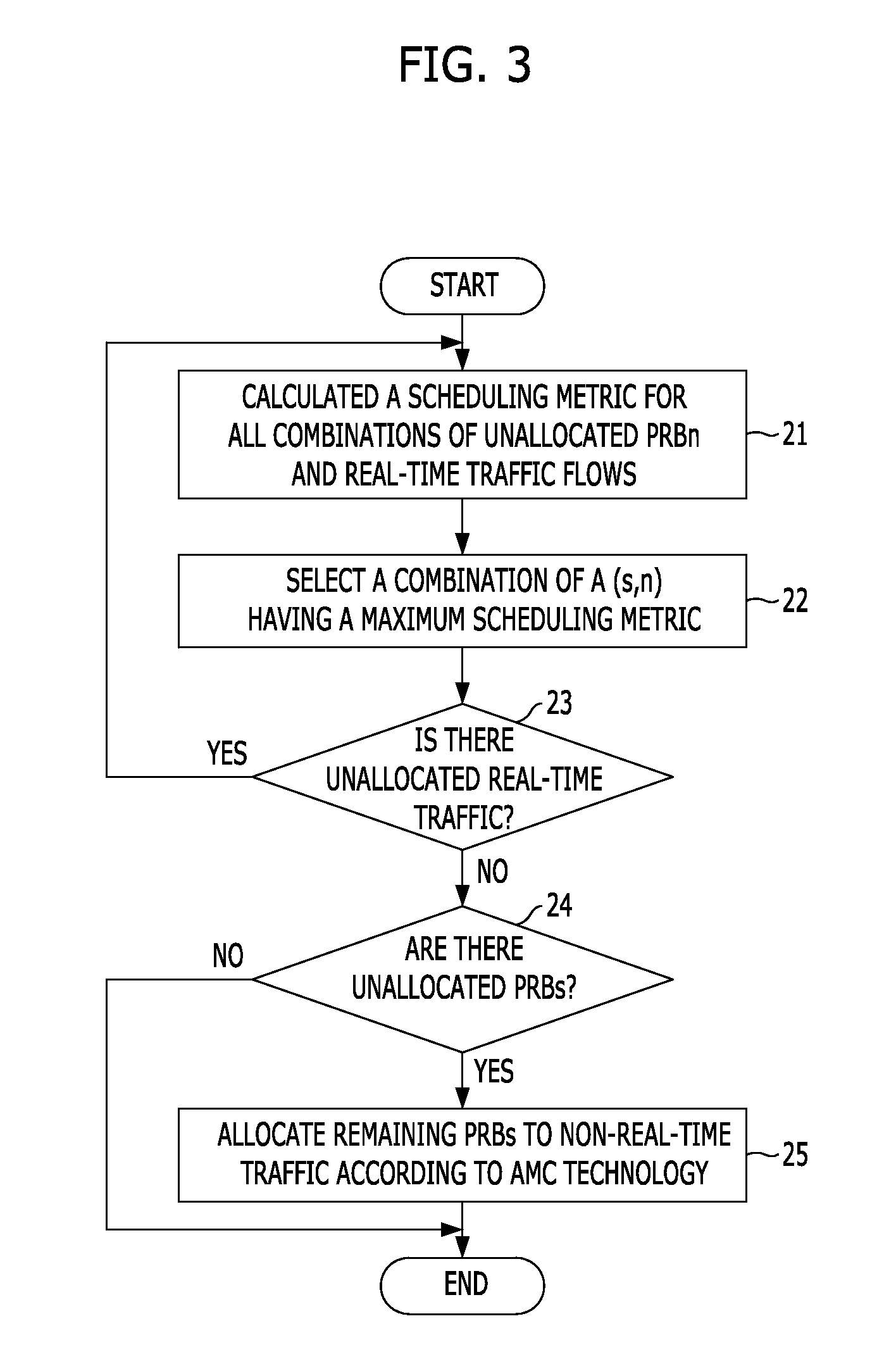Method and apparatus for scheduling a downlink packet in a wireless communication system
a wireless communication system and downlink packet technology, applied in electrical equipment, wireless communication services, wireless communication, etc., can solve the problems of deteriorating the quality of service (qos) of corresponding traffic, difficult to provide qos for delay-sensitive traffic flow, and the total data throughput of a system is not optimized, so as to maximize the total data throughput of a system
- Summary
- Abstract
- Description
- Claims
- Application Information
AI Technical Summary
Benefits of technology
Problems solved by technology
Method used
Image
Examples
Embodiment Construction
[0047]The above aspects, characteristics, and merits will become more apparent from the following detailed description taken in conjunction with the accompanying drawings, and thus a person having ordinary skill in the art to which the present disclosure pertains may readily implement the technical spirit of the present invention. Furthermore, in describing exemplary embodiments, a detailed description of known art related to the exemplary embodiments will be omitted if it is deemed to make the gist of the present disclosure unnecessarily vague. Exemplary embodiments are described in detail below with reference to the accompanying drawings.
[0048]Throughout this specification, when it is described that one part is “connected” to the other part, the one part may be “directly connected” to the other part or “electrically connected” to the other part through a third element. Furthermore, when it is said that any part “includes” or “comprises” any element, it means the part does not excl...
PUM
 Login to View More
Login to View More Abstract
Description
Claims
Application Information
 Login to View More
Login to View More - R&D
- Intellectual Property
- Life Sciences
- Materials
- Tech Scout
- Unparalleled Data Quality
- Higher Quality Content
- 60% Fewer Hallucinations
Browse by: Latest US Patents, China's latest patents, Technical Efficacy Thesaurus, Application Domain, Technology Topic, Popular Technical Reports.
© 2025 PatSnap. All rights reserved.Legal|Privacy policy|Modern Slavery Act Transparency Statement|Sitemap|About US| Contact US: help@patsnap.com



